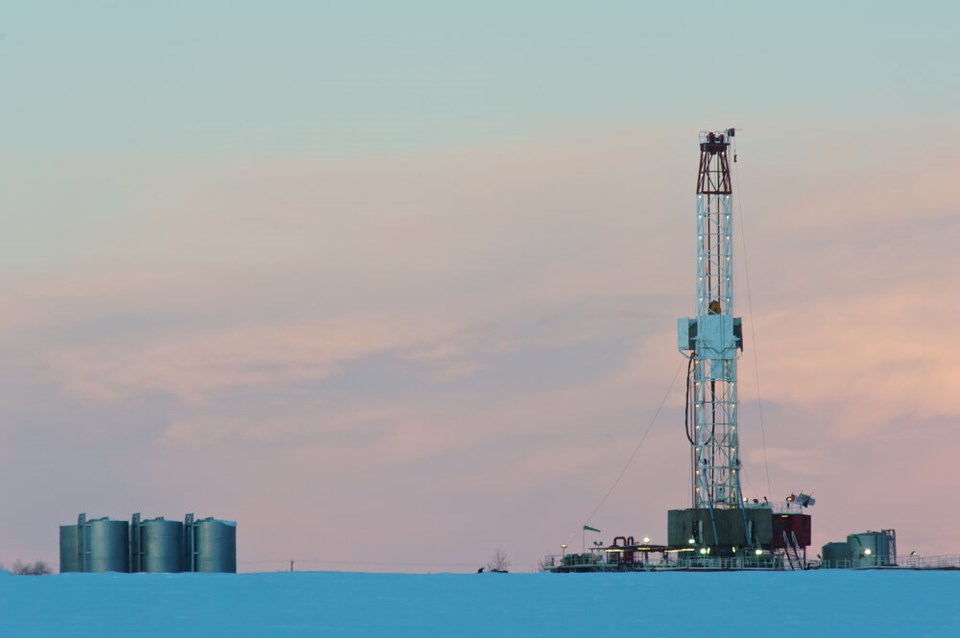A group of doctors is calling for a moratorium on hydraulic fracking in British Columbia, citing reports from nearby residents the industry is deteriorating their mental and physical health.
Their evidence is outlined in a report issued Wednesday from the Canadian Association of Physicians for the Environment (CAPE), which surveyed dozens of people living near gas fields in the province’s Peace region, last spring.
“We call them people from the sacrifice zone,” said Dr. Larry Barzelai, a Vancouver family doctor and assistant professor in the University of British Columbia’s Faculty of Medicine.
“Their lives are challenging. They’re producing the food and the natural gas for the rest of us. People should know what they’re dealing with," said Barzelai, who pointed to studies — mostly from the U.S. — demonstrating people living near fracking operations face increased rates of childhood leukaemia, low birth weights and congenital birth defects.
Glacier Media requested comment from several of the largest producers of hydraulically fracked gas in B.C., but has yet to receive a response.
Meanwhile, the BC Oil and Gas Commission deferred comment to the B.C. government and a spokesperson for B.C.'s Ministry of Energy, Mines and Low Carbon Innovation declined to immediately comment on the report's findings, saying it was still reviewing the document.
Residents report a long list of health concerns
CAPE surveyed 53 respondents who lived within five kilometres of oil and gas operations. Of those, more than half lived in places such as Fort St. John, Dawson Creek, Chetwyn and the Peace area — nine participated in in-depth interviews.
The results suggest people living in B.C.’s northeast face direct health problems from leaking gas.
One interviewee said they fell ill and developed a sore throat after days of exposure to so-called fugitive emissions. Another said they would feel “sick to their stomach for hours after smelling sour gas emanating from nearby transport trucks,” the report says.
In other cases, children would come in from outside with headaches connected to industrial odours, a respondent reported.
Other responses from local residents indicated negative effects accumulated over time, leading to scent sensitivity and environmental allergies lasting all year round.
“The change occurred following the initiation and increase in fracking-related activity in the area. Year-round symptoms such as a runny nose and eyes and cough were described,” the report notes.
Others described the worsening of tremors related to auto-immune conditions like multiple sclerosis (M.S.), something health professionals interviewed for the report suggested could be linked to contaminated water.
Respiratory conditions and persistent coughs were also reported with the onset of nearby fracking, as well as high rates of COPD.
Linking spike in health concerns to fracking requires more investigation
Health professionals in the community recalled noticing differences in the way that patients presented within two weeks of moving to Northern B.C., according to interviews cited in the report.
“They observed elevated incidence of advanced-stage cancer in younger people and reported industry workers dying of cancer in their late twenties. Community members also raised concerns about cancer rates in the region,” the report states.
Patients also reported a number of other conditions, including erectile dysfunction and hypogonadism. Meanwhile, anti-hypertensives typically prescribed to older people were being prescribed to young oil and gas workers, the report states.
While suspicious to heath professionals, the report notes the concerns over patients' health require deeper investigation and do not represent conclusive evidence they are linked with fracking.
Fracking leading to daily stress, financial and environmental concerns
Other residents reported less obvious daily intrusions from nearby fracking operations.
Some surveyed residents said the activity, odour and noise from fracking “infiltrates almost every aspect of their lives.” Others worried about the long-term value of property as industrial activity increased. One said they had trouble sleeping, in some cases spending nights in a hotel in town to get away from the noise and smell.
The report also points to Indigenous communities in the area who have found abnormal growths on moose near fracking sites, something that has raised fears eating certain traditional foods could lead to cancer.
As a result, the CAPE report recommends a moratorium on new LNG wells across Canada and for government to halt subsidies to the hydraulic fracturing industry.
Among nine measures, the group also calls for authorities to do more to protect residents living near current fracking sites and carry out in-depth studies on the health of oil and gas workers in northeastern B.C.
Climate benefits of LNG questionable
This is not the first time CAPE has called from an end to fracking. A 2020 report from the group, which outlined health and environmental damages associated with fracking, including everything from cancer to birth defects to air pollution and global warming.
CAPE has been a leading voice advocating for government to phase out fracking and LNG use more widely. In the past, it has largely drawn on scientific studies and health professionals. The latest report, however, leans on the personal experiences of people living near gas fields.
Proponents of Liquifed Natural Gas (LNG) say it burns cleaner than coal or oil and so is a critical tool to lower carbon emissions. Unlike gasoline or oil, however, LNG can inadvertently vent into the surrounding environment without combusting. When it leaks into the atmosphere, the methane-heavy gas produces a greenhouse effect more than 80 times more potent than carbon dioxide over a 20-year period.
Methane emissions have steadily risen across the planet since 2007, and by 2020, nearly 7.5 per cent of Canada’s greenhouse gas output came from fugitive methane emissions in the oil and gas sector, according to a national inventory.





